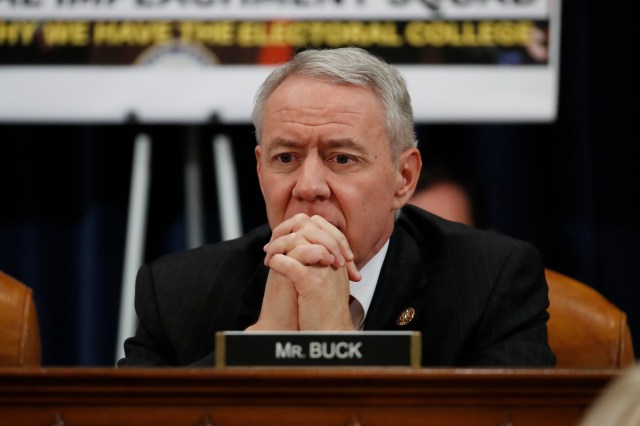As artificial intelligence continues to reshape society in both anticipated and unexpected ways, prominent federal lawmakers in Colorado are taking steps to establish guidelines for the technology’s use without stifling its advancement.
U.S. Rep. Ken Buck, a Windsor Republican, is collaborating with California Democrat Ted Lieu on legislation to form a national commission dedicated to overseeing AI regulation. They are also working on a bill to prevent AI from autonomously launching nuclear weapons.
Meanwhile, Sen. Michael Bennet, a Democrat, has urged Senate Majority Leader Chuck Schumer to tread carefully in regulating AI, drawing parallels to the challenges posed by the unregulated growth of social media platforms. Sen. John Hickenlooper, also a Democrat, chaired a subcommittee hearing addressing AI-related issues last September.
The absence of concrete regulatory measures in Congress, known for its slow pace of progress, does not diminish the growing focus on AI governance. Internationally, the European Union has already reached agreements on AI regulation, and the United Nations is also monitoring developments in this field.
At the state level, Colorado lawmakers, supported by Secretary of State Jena Griswold, are considering legislation to oversee the use of AI in election campaigns to safeguard electoral integrity.
While concerns about AI range from its potential misuse in elections to economic disruptions and even catastrophic scenarios involving nuclear weapons, the technology also offers significant benefits. These include its applications in medical diagnostics, education, and forthcoming innovations.
Rep. Ken Buck’s interest in AI stemmed from his scrutiny of Big Tech, aiming to ensure that innovation in AI does not compromise the well-being of Americans. Daniel Weiner, from the Brennan Center, highlighted the emergence of AI-manipulated content in elections, emphasizing the need for safeguards against deepfakes and misinformation.
Weiner proposed the use of prominent watermarks on AI-generated media as a potential solution to combat deceptive content. However, he also cautioned against overly restrictive regulations that could impede innovation or disadvantage U.S. industries.
As AI continues to evolve, lawmakers like Buck and Bennet are at the forefront of addressing its implications. While regulations are essential for security and privacy protection, they also play a crucial role in maintaining America’s competitiveness and socioeconomic balance.
Looking ahead, the development of comprehensive AI policies remains a pressing issue, with both legislative and executive actions necessary to navigate the complex landscape of artificial intelligence responsibly.






